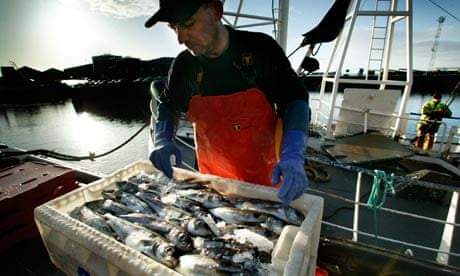Britain's fishing fleets face a cut in the number of days they can spend at sea but will be permitted to net bigger catches under a new European Union deal.
The agreement, struck after more than three weeks of negotiations in Brussels, was hailed by Richard Benyon, the fisheries minister, as "the best possible" outcome for the UK fishing industry.
But fishing industry officials, who have long argued against quota restraints that mean tonnes of fish must be thrown back into the sea, criticised the deal as a "bitter blow".
Britain's trawlers had originally been threatened with having fishing days cut to just four a fortnight, but were given concessions in return for greater commitments to fish sustainability.
However, vessels will still be confined to ports for longer than before, making it harder for them to capitalise on significant rises in fish catch quotas that reflect improvements in fish conservation.
"After two days of tense and frustrating negotiations I am delighted to have secured the best deal possible for the UK fishing industry and ensure the future sustainability of our fish stocks," Benyon said.
"By arguing that we should follow scientific advice we have been able to agree quotas that will not only allow local fishermen to make a living but will also ensure that we can protect the environment."
Bertie Armstrong, chief executive of the Scottish Fishermen's Federation, hit out at reductions in days at sea of up to 25% under the deal. "This is a bitter blow for our fishing fleet, which is now going to struggle to maintain economic viability under the impact of these totally unwarranted cuts," he said.
Richard Lochhead, Benyon's Scottish counterpart, said the 2012 quota deal would allow the country's fishing communities to "breathe a sigh of relief". "Quotas are the lifeblood of the fleet and we have won increases for our key stocks in line with the science," he said. "There is very good news on the west coast in particular with a 200% increase in haddock quota and the removal of regulations that were hurting the fleet."
The new agreement will see a doubling of the north-east coast herring quota and a 150% rise in south-west cod catches. There will be also be 25% bigger catches for south-west haddock, and 15% increases each for north-east haddock and north-east and south-west whiting, and a 9% rise in Channel sole catches.
There are fears, however, that an overall cut in days at sea will still hit struggling fleets, particularly in designated European Commission zones, where efforts to revive depleted cod stocks have only partially succeeded.
